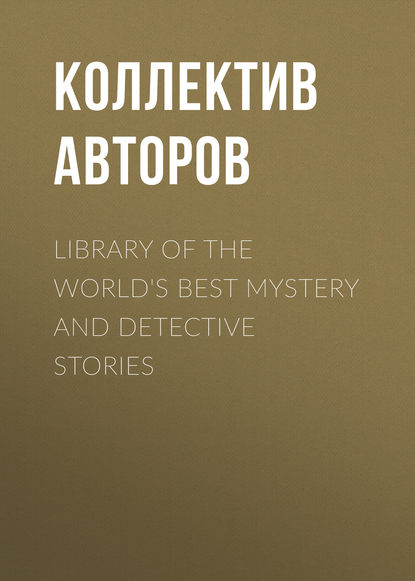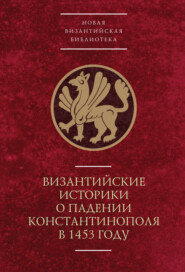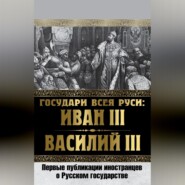По всем вопросам обращайтесь на: info@litportal.ru
(©) 2003-2024.
✖
Library of the World's Best Mystery and Detective Stories
Настройки чтения
Размер шрифта
Высота строк
Поля
"Ah! madame," cried the prosecutor, sitting down beside her and changing his tone. "At this moment, for lack of a word, one of us – you or I – may carry our heads to the scaffold. I have watched your character, your soul, your manner, too closely to share the error into which you have managed to lead your visitors to-night. You are expecting your son, I could not doubt it."
The Countess made an involuntary sign of denial, but her face had grown white and drawn with the struggle to maintain the composure that she did not feel, and no tremor was lost on the merciless prosecutor.
"Very well," the Revolutionary official went on, "receive him; but do not let him stay under your roof after seven o'clock to-morrow morning; for to-morrow, as soon as it is light, I shall come with a denunciation that I will have made out, and – "
She looked at him, and the dull misery in her eyes would have softened a tiger.
"I will make it clear that the denunciation was false by making a thorough search," he went on in a gentle voice; "my report shall be such that you will be safe from any subsequent suspicion. I shall make mention of your patriotic gifts, your civism, and all of us will be safe."
Mme. de Dey, fearful of a trap, sat motionless, her face afire, her tongue frozen. A knock at the door rang through the house.
"Oh!.." cried the terrified mother, falling upon her knees; "save him! save him!"
"Yes, let us save him!" returned the public prosecutor, and his eyes grew bright as he looked at her, "if it costs us our lives!"
"Lost!" she wailed. The prosecutor raised her politely.
"Madame," said he with a flourish of eloquence, "to your own free will alone would I owe – "
"Madame, he is – " cried Brigitte, thinking that her mistress was alone. At the sight of the public prosecutor, the old servant's joy-flushed countenance became haggard and impassive.
"Who is it, Brigitte?" the prosecutor asked kindly, as if he too were in the secret of the household.
"A conscript that the mayor has sent here for a night's lodging," the woman replied, holding out the billet.
"So it is," said the prosecutor, when he had read the slip of paper. "A battalion is coming here to-night."
And he went.
The Countess's need to believe in the faith of her sometime attorney was so great, that she dared not entertain any suspicion of him. She fled upstairs; she felt scarcely strength enough to stand; she opened the door, and sprang, half dead with fear, into her son's arms.
"Oh! my child! my child!" she sobbed, covering him with almost frenzied kisses.
"Madame!.." said a stranger's voice.
"Oh! it is not he!" she cried, shrinking away in terror, and she stood face to face with the conscript, gazing at him with haggard eyes.
"O saint bon Dieu! how like he is!" cried Brigitte.
There was silence for a moment; even the stranger trembled at the sight of Mme. de Dey's face.
"Ah! monsieur," she said, leaning on the arm of Brigitte's husband, feeling for the first time the full extent of a sorrow that had all but killed her at its first threatening; "ah! monsieur, I cannot stay to see you any longer … permit my servants to supply my place, and to see that you have all that you want."
She went down to her own room, Brigitte and the old serving-man half carrying her between them. The housekeeper set her mistress in a chair, and broke out:
"What, madame! is that man to sleep in Monsieur Auguste's bed, and wear Monsieur Auguste's slippers, and eat the pasty that I made for Monsieur Auguste? Why, if they were to guillotine me for it, I – "
"Brigitte!" cried Mme. de Dey.
Brigitte said no more.
"Hold your tongue, chatterbox," said her husband, in a low voice; "do you want to kill madame?"
A sound came from the conscript's room as he drew his chair to the table.
"I shall not stay here," cried Mme. de Dey; "I shall go into the conservatory; I shall hear better there if anyone passes in the night."
She still wavered between the fear that she had lost her son and the hope of seeing him once more. That night was hideously silent. Once, for the Countess, there was an awful interval, when the battalion of conscripts entered the town, and the men went by, one by one, to their lodgings. Every footfall, every sound in the street, raised hopes to be disappointed; but it was not for long, the dreadful quiet succeeded again. Toward morning the Countess was forced to return to her room. Brigitte, ever keeping watch over her mistress's movements, did not see her come out again; and when she went, she found the Countess lying there dead.
"I expect she heard that conscript," cried Brigitte, "walking about Monsieur Auguste's room, whistling that accursed Marseillaise of theirs while he dressed, as if he had been in a stable! That must have killed her."
But it was a deeper and a more solemn emotion, and doubtless some dreadful vision, that had caused Mme. de Dey's death; for at the very hour when she died at Carentan, her son was shot in le Morbihan.
This tragical story may be added to all the instances on record of the workings of sympathies uncontrolled by the laws of time and space. These observations, collected with scientific curiosity by a few isolated individuals, will one day serve as documents on which to base the foundations of a new science which hitherto has lacked its man of genius.
Introduction to Zadig the Babylonian
A work (says the author) which performs more than it promises.
Voltaire never heard of a "detective story"; and yet he wrote the first in modern literature, so clever as to be a model for all the others that followed.
He describes his hero Zadig thus: "His chief talent consisted in discovering the truth," – in making swift, yet marvelous deductions, worthy of Sherlock Holmes or any other of the ingenious modern "thinking machines."
But no one would be more surprised than Voltaire to behold the part that Zadig now "performs." The amusing Babylonian, now regarded as the aristocratic ancestor of modern story-detectives, was created as a chief mocker in a satire on eighteenth-century manners, morals, and metaphysics.
Voltaire breathed his dazzling brilliance into "Zadig" as he did into a hundred other characters – for a political purpose. Their veiled and bitter satire was to make Europe think – to sting reason into action – to ridicule out of existence a humbugging System of special privileges. It did, via the French Revolution and the resulting upheavals. His prose romances are the most perfect of Voltaire's manifold expressions to this end, which mark him the most powerful literary man of the century.
But the arch-wit of his age outdid his brilliant self in "Zadig." So surpassingly sharp and quick was this finished sleuth that his methods far outlived his satirical mission. His razor-mind was reincarnated a century later as the fascinator of nations – M. Dupin. And from Poe's wizard up to Sherlock Holmes, no one of the thousand "detectives," drawn in a myriad scenes that thrill the world of readers, but owes his outlines, at least, to "Zadig."
"Don't use your reason – act like your friends – respect conventionalities – otherwise the world will absolutely refuse to let you be happy." This sums up the theory of life that Zadig satires. His comical troubles proceed entirely from his use of independent reason as opposed to the customs of his times.
The satire fitted ancient Babylonia – it fitted eighteenth-century France – and perhaps the reader of these volumes can find some points of contact with his own surroundings.
It is still piquant, however, to remember Zadig's original raison d'être. He happened to be cast in the part of what we now know as "a detective," merely because Voltaire had been reading stories in the "Arabian Nights" whose heroes get out of scrapes by marvelous deductions from simple signs. (See Vol. VI.)
Voltaire must have grinned at the delicious human interest, the subtle irony to pierce complacent humbugs, that lurked behind these Oriental situations. He made the most of his chance for a quaint parable, applicable to the courts, the church and science of Europe. As the story runs on, midst many and sudden adventures, the Babylonian reads causes from events in guileless fashion, enthusiastic as Sherlock Holmes, and no less efficient – and all the while, behind this innocent mask, Voltaire is insinuating a comparison between the practical results of Zadig's common sense and the futile mental cobwebs spun by the alleged thought of the time.
Especially did "Zadig" caricature orthodox science, and the metaphysicians, whose solemn searches after final causes, after the reality behind the appearance of things, mostly wandered into hopeless tangles, and thus formed a great weapon of political oppression, by postponing the age of reason and independent thought. Zadig "did not employ himself in calculating how many inches of water flow in a second of time under the arches of a bridge, or whether there fell a cube line of rain in the month of the Mouse more than in the month of the Sheep. He never dreamed of making silk of cobwebs, or porcelain of broken bottles; but he chiefly studied the properties of plants and animals; and soon acquired a sagacity that made him discover a thousand differences where other men see nothing but uniformity."
FRANÇOIS MARIE AROUET DE VOLTAIRE
Zadig the Babylonian
THE BLIND OF ONE EYE
There lived at Babylon, in the reign of King Moabdar, a young man named Zadig, of a good natural disposition, strengthened and improved by education. Though rich and young, he had learned to moderate his passions; he had nothing stiff or affected in his behavior, he did not pretend to examine every action by the strict rules of reason, but was always ready to make proper allowances for the weakness of mankind.
It was matter of surprise that, notwithstanding his sprightly wit, he never exposed by his raillery those vague, incoherent, and noisy discourses, those rash censures, ignorant decisions, coarse jests, and all that empty jingle of words which at Babylon went by the name of conversation. He had learned, in the first book of Zoroaster, that self love is a football swelled with wind, from which, when pierced, the most terrible tempests issue forth.

















